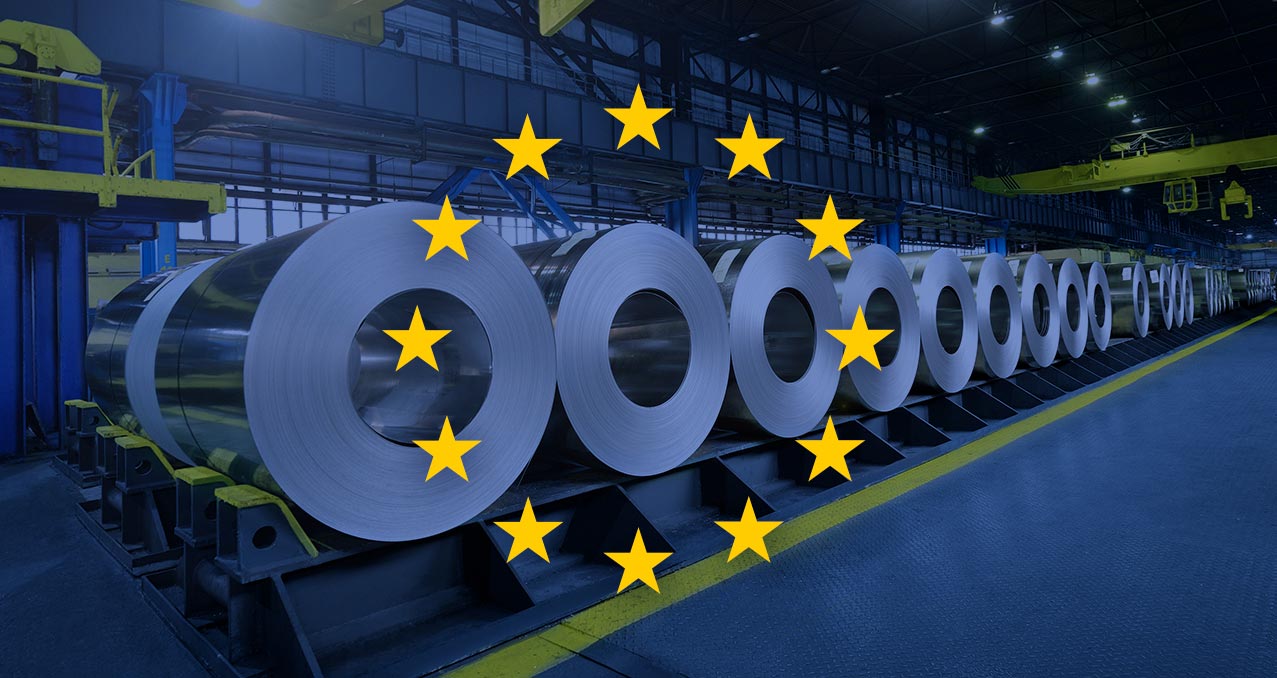EU renews steel safeguard tariffs for three years
Since July 2018, the European Union has been charging 25% safeguard tariffs on imports of steel products exceeding their quotas. Initially, the tariff was due to expire at the end of June. While European steel companies wanted an extension of the safeguard clauses, steel consumers will be affected by the tariffs in a scenario of peak prices and low availability in the European steel market. This week, Arania reviews the latest developments.
The EU’s tariff policy aims to ensure the sustainability and employment of European steel companies against commercial pressure from countries such as China. However, the effect of this price control mechanism has been distorted in the last months, as the Chinese economy has reactivated earlier and faster than the European; this situation is affecting the world trade balance. The problem has become more evident with the crisis in the semiconductor and microchip markets, for example, and now it seems to have reached steel and other raw materials.
Now, major players in the rolled steel sector including Arania are watching as the EU will extend safeguard tariffs on imports of steel products for another three years, albeit with no changes in the products to which they apply and allowing a 3% yearly liberalisation of tariff rate quotas. Since July 2018, the EU has been charging a 25% tariff on imports of steel products exceeding its quotas. The tariff was originally planned to expire on the 30th of June.
European steel companies urged the European Commission to extend the safeguard measures, while steel consumers expressed their opposition to the tariffs in a scenario marked by high prices and low availability in the European steel market. For some steel industry leaders, further safeguard measures – when steel producers struggle to meet demand and steel prices are at record highs – will negatively affect the steel processing industries and the automotive sector.
Briefly, the situation is as follows: automotive suppliers normally only purchase steel outside the EU when the continent is unable to meet the production capacity required to satisfy the demand for specialised steel. Therefore, as the main automotive leaders believe, the maintenance of the safeguard instrument with only a minimal expansion of the quota (to buy abroad) does not work for the interests of the European economy as a whole.
In addition, the European Commission also gave the final push to the so-called “border adjustment”, a set of measures that will impose tax barriers on steel imports from countries where environmental legislation is much more lax. This is part of an ambitious legislative package with the catchy name of “Fit for 55”, aiming to cut CO2 emissions by 55% in the Old Continent.
Safeguard tariffs: protective measures consisting of tariff quotas reflecting traditional trade flows with third countries, above which a 25% duty is charged on imports.
- Steel prices reach record highs
- High prices + low availability
- In this scenario, extending the safeguard measures will affect the steel processing industries
- In particular, this measure will continue to put the automotive supply chain under pressure
